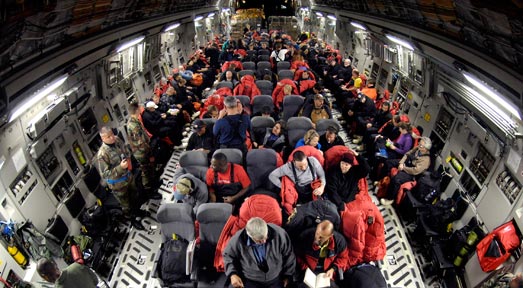Story summary
Early relations, 1790–1939
In the late 18th century American sealers and whalers operated in New Zealand waters, and by 1838 more than half of the whaling ships visiting the Bay of Islands were American. An American variety of kūmara (sweet potato) became popular with Māori.
New Zealanders were influenced by American ideas and social movements, including the temperance and women’s movements, and labour organisations.
In 1908 the government welcomed the visiting ‘great white fleet’, a US Navy fleet travelling around the world to demonstrate American military power. However, New Zealand (and Australia) continued to rely on Britain for defence against threats from overseas.
Allies, 1939–1984
In the Second World War 100,000 US troops passed through New Zealand bases, and after the war the US became the main provider of military security for non-communist countries in Asia and the Pacific. In 1951 New Zealand, Australia and the US signed the ANZUS military treaty. New Zealand sent troops to fight alongside the US in the Korean and Vietnam wars, although some New Zealanders opposed involvement in Vietnam.
After Britain joined the European Economic Community in 1973, the US became a more important trading partner for New Zealand.
American cultural influences such as country music, Hollywood movies and television shows were popular, and the Fulbright programme encouraged cultural and educational exchanges with the US.
1980s crisis
In the 1980s many New Zealanders opposed nuclear weapons, and in 1984 the Labour government banned visits by nuclear-armed or -propelled ships. Relations with the US broke down, and the US suspended military cooperation with New Zealand under ANZUS.
Improving relations, 1990–
New Zealanders continued to support the non-nuclear policy, but relations with the US improved as New Zealand played a supportive role in international conflicts. In 2010 Prime Minister John Key was invited to US President Barack Obama’s nuclear security summit, and the Wellington Declaration was signed between the two countries.
In the 2010s the US was New Zealand’s third-largest trading partner and third-largest source of visitors. American popular culture continued to influence New Zealand in everything from hip-hop music to movies to technology.





